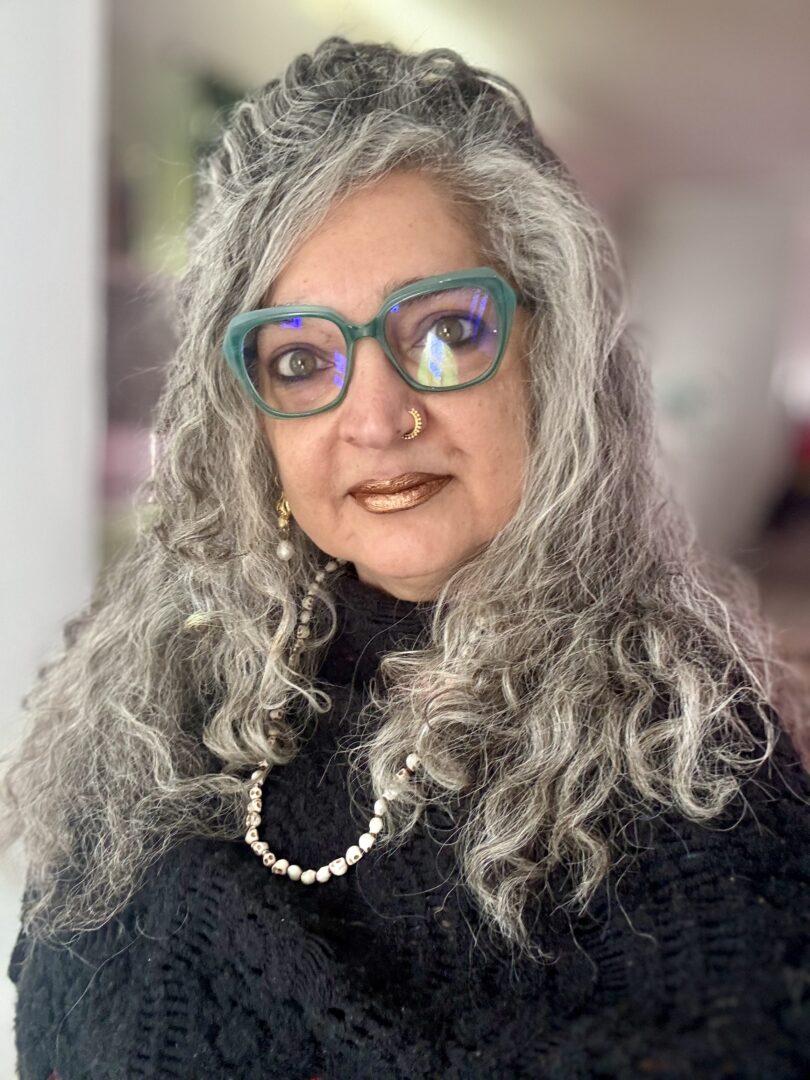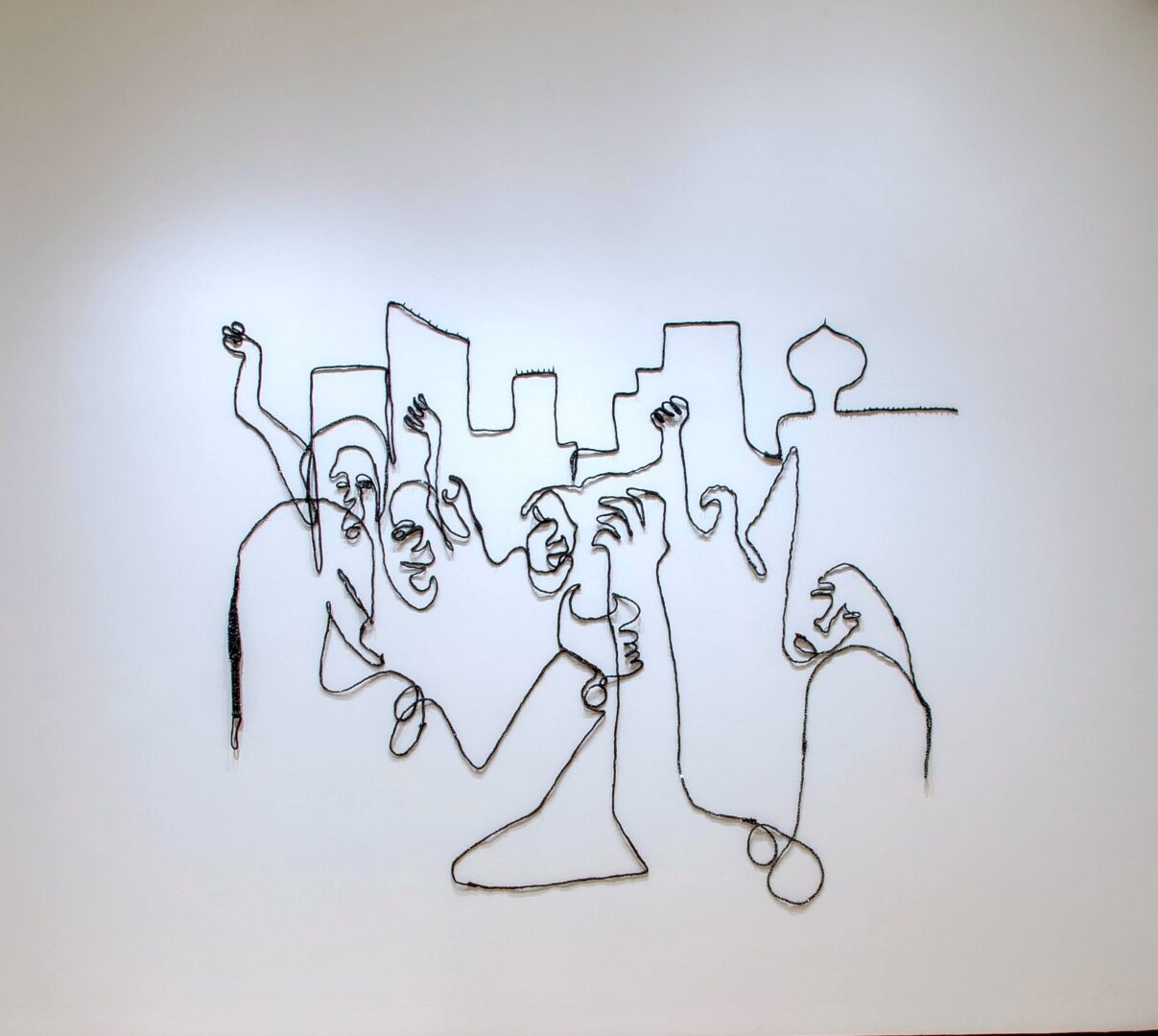About the Artist
PYAARI AZAADI formerly known as Jaishri Abichandani (she/her; b. 1969, Bombay, India) immigrated to the US in 1984. She received her MFA from Goldsmiths College, University of London. Pyaari has continued to intertwine studio and social practice, art and activism, creating transformative work with Queer, BIPoC communities in New York for three decades. She founded the South Asian Women’s Creative Collective (SAWCC) in New York (1997) and London (2004). Azaadi has exhibited internationally including a critically acclaimed solo exhibition, Flower Headed Children at the Craft Contemporary Museum in Los Angeles in 2022. Pyaari has an upcoming solo exhibition at Pen and Brush, the 130 feminist organization scheduled in Fall 2025. Group exhibitions include P.S.1/MoMA, the Queens Museum of Art, and Asia Society in New York, 798 Beijing Biennial and Guangzhou Triennial in China, the Mori Art Museum in Tokyo, IVAM in Valencia, Spain, and the House of World Cultures in Berlin, Germany.
Azaadi served as the founding Director of Public Events and Projects from 2003-06 at the Queens Museum, curating exhibitions and connecting the museum to local communities. In 2017, Pyaari engineered a collaboration between the Smithsonian Asian
Pacific American Center, Asia Society and the Queens Museum to organize a national convening of South Asian American artists, academics and curators; and the exhibition Lucid Dreams and Distant Visions. In 2019, Azaadi curated a trilogy of exhibitions to inaugurate the Ford Foundation Gallery: Perilous Bodies, Radical Love, and Utopian Imagination centered the visions of BIPOC artists.
Pyaari Azaadi has been a resident of LMCC’s Process Space residency; an honoree of the Brooklyn Arts Council and ASHA for Women. Pyaari Azaadi was awarded grants by the FST Studio Projects fund and the Foundation for Contemporary Art in 2021, the NYFA Fellowship in Sculpture in 2023 and the Artists Fellowship from Huntington Arts Council in 2024.
Statement of work
I make work rooted in equity and love, dividing my time between social practice and making artworks. My art is a vehicle for social change whether in the form of creating socially engaged art works, activating communities by creating new spaces for QBIPoC artists, intervening in existing spaces, or curating exhibitions that center the work of Queer BIPoC. I examine constructions of National, religious and gender identity and markers to reveal how marginalized individuals hold space and agency within oppressive systems. My location in the US where the public is generally uninformed about Hinduism means that there are few to take offense at the subversive feminist critiques of the religion inherent in my work – the distance of diaspora guarantees me the safety required to make these critiques without fear of reprisal and violence by Hindu fascists and government.
The paintings and sculptures that I produce in the studio synthesize the mythology and aesthetic vernaculars of South Asian art and culture with contemporary socio- political concerns. Having abdicated the religion I was born into (Hinduism), for its violent misogyny and caste apartheid, I feel compelled to create a new pantheon that is at once magical/ sacred and reflects my intersectional feminism. Often collapsing autobiography, contemporary ideas and politics within mythological forms, I inscribe multiple narratives into each work. The compositions of my works often allude to iconic tropes in Indian sculptures, while updating and subverting them. Materials used in ritual worship of idols such as clothing and jewelry are extracted from their religious purposes and brought into the space of contemporary art, amplifying the association of the sculptures with the Divine Feminine. Imbuing archetypal imagery with political and feminist concerns allows me to respond to the rise of religious and racial fundamentalism in my countries of origin and residence.

